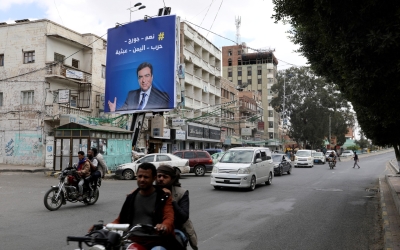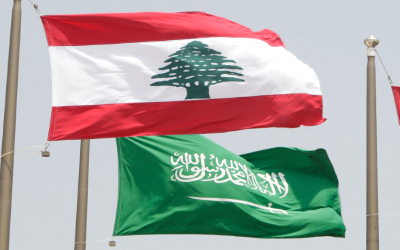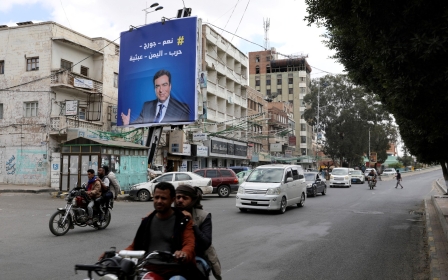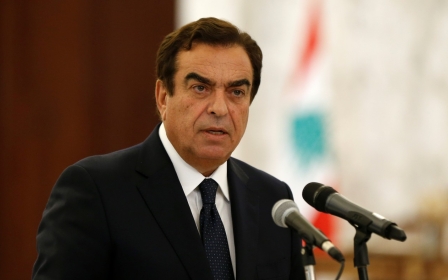Lebanon: Information minister Kordahi quits amid row with Gulf states
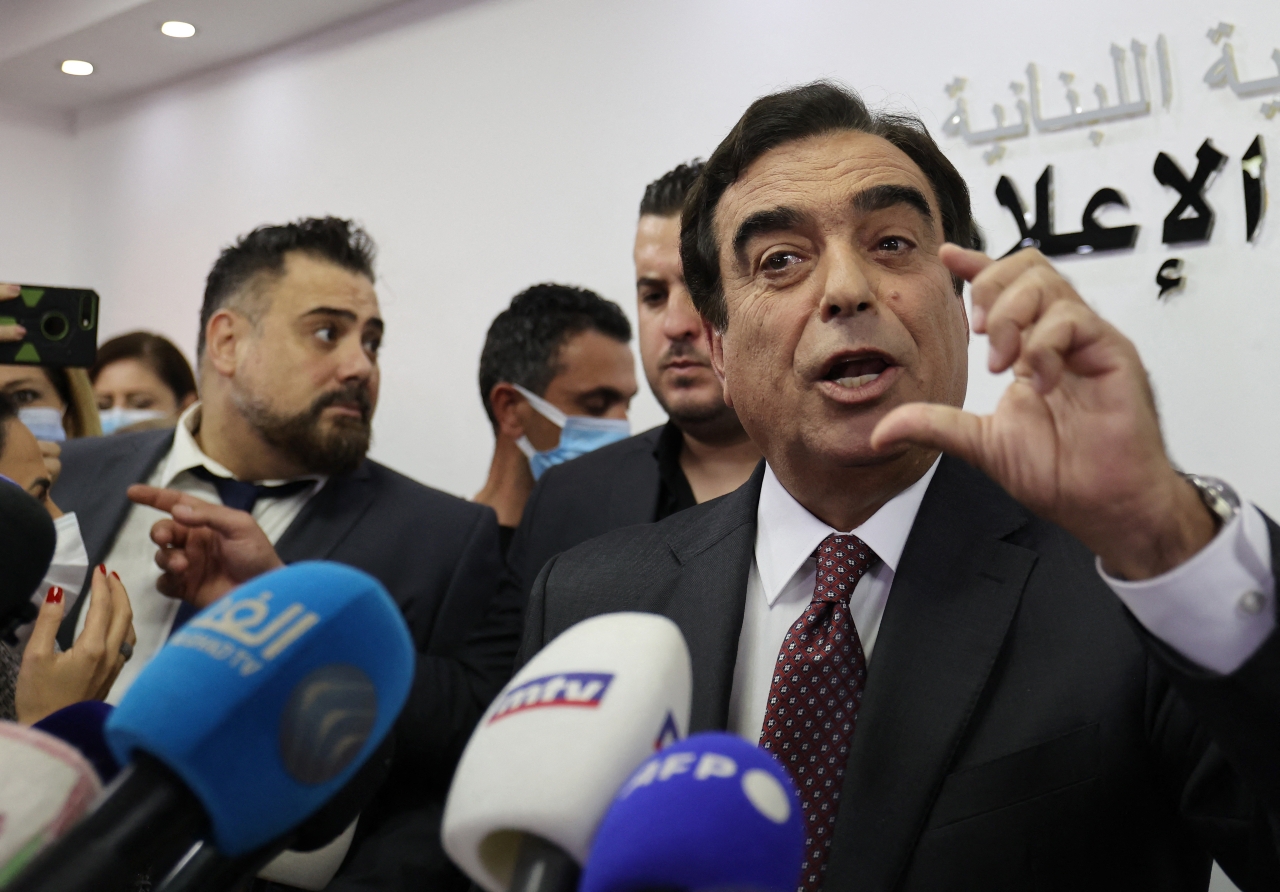
The Lebanese Information Minister George Kordahi, whose criticism of the war in Yemen caused one of the biggest diplomatic rows between Saudi Arabia and Lebanon in years, resigned on Friday.
Kordahi said he resigned ahead of Emmanuel Macron's visit to Riyadh hoping that during the visit the French president would help ease the crisis with Lebanon.
New MEE newsletter: Jerusalem Dispatch
Sign up to get the latest insights and analysis on Israel-Palestine, alongside Turkey Unpacked and other MEE newsletters
Last month, Kordahi repeatedly said that he would not step down from his position, while Prime Minister Najib Mikati - who has been working to mitigate the fallout between Beirut and the Gulf countries - had called on him to "prioritise national interest" while stopping short of urging him to quit.
"I understood from Mikati... that the French want my resignation to take place ahead of his (Macron's) visit," Kordahi told a news conference in Beirut, saying he believed Mikati had assurances that Macron would discuss Lebanon's ties with Riyadh.
"Because I am keen to take advantage of this promising opportunity that Macron has... I have decided to step down from my ministerial post.
"I refuse to be used as a reason to harm Lebanon and my fellow Lebanese in Saudi Arabia and other Gulf countries," he said, adding he wanted to prevent any punitive action against the hundreds of thousands of Lebanese living in Gulf Arab states.
Macron said later on Friday he hoped there would be progress on the Lebanon crisis in the next hours.
"We will do all we can to re-engage the Gulf regions for the benefit of Lebanon... I hope the coming hours will allow us to make progress," the French president said during a visit to the United Arab Emirates (UAE).
Conflict in Yemen 'absurd'
In October, Kordahi, the former host of the Arabic version of the show Who Wants to Be a Millionaire? appeared on the show Parliament of the People, broadcast by Al Jazeera, during which he was asked about his views on the war in Yemen.
In the interview, taped before he became minister, Kordahi said Houthi rebels fighting the Saudi-led coalition were acting in self-defence and "weren't attacking anyone", before calling the conflict in Yemen "absurd".
In response Saudi Arabia ordered the expulsion of the Lebanese ambassador and the immediate halt of all imports from the cash-strapped country.
Saudi media giant MBC Group, the Arab world's largest private media conglomerate, also said it would close operations in Lebanon, according to multiple Saudi news outlets.
Four other Gulf states, including the UAE, also recalled their envoys to Lebanon after Kordahi's comments.
'Sideshow'
Saudi Arabia and its allies, including the UAE, have led a military coalition fighting against Iran-aligned Houthi rebels in the country since 2015.
Karim Emile Bitar, head of the political science institute at Saint Joseph University of Beirut, said despite Kordahi's resignation the Saudi measures were unlikely to be lifted swiftly as they were driven by the ongoing regional tussle between Tehran and Riyadh.
"Their main objective is to trim the wings of Hezbollah," he told Reuters.
"The whole Kordahi affair was a sideshow that showed once again that Lebanon is not a sovereign country and is paying the price of the Saudi-Iranian proxy war."
The economic impact from the Saudi ban on imports has dealt another devastating blow to Lebanon's economy, which is already in a dire situation as a result of a number of setbacks.
A severe financial crisis has led the Lebanese lira to depreciate by more than 90 percent, and the 2020 Beirut port blast devastated the capital.
Middle East Eye delivers independent and unrivalled coverage and analysis of the Middle East, North Africa and beyond. To learn more about republishing this content and the associated fees, please fill out this form. More about MEE can be found here.


